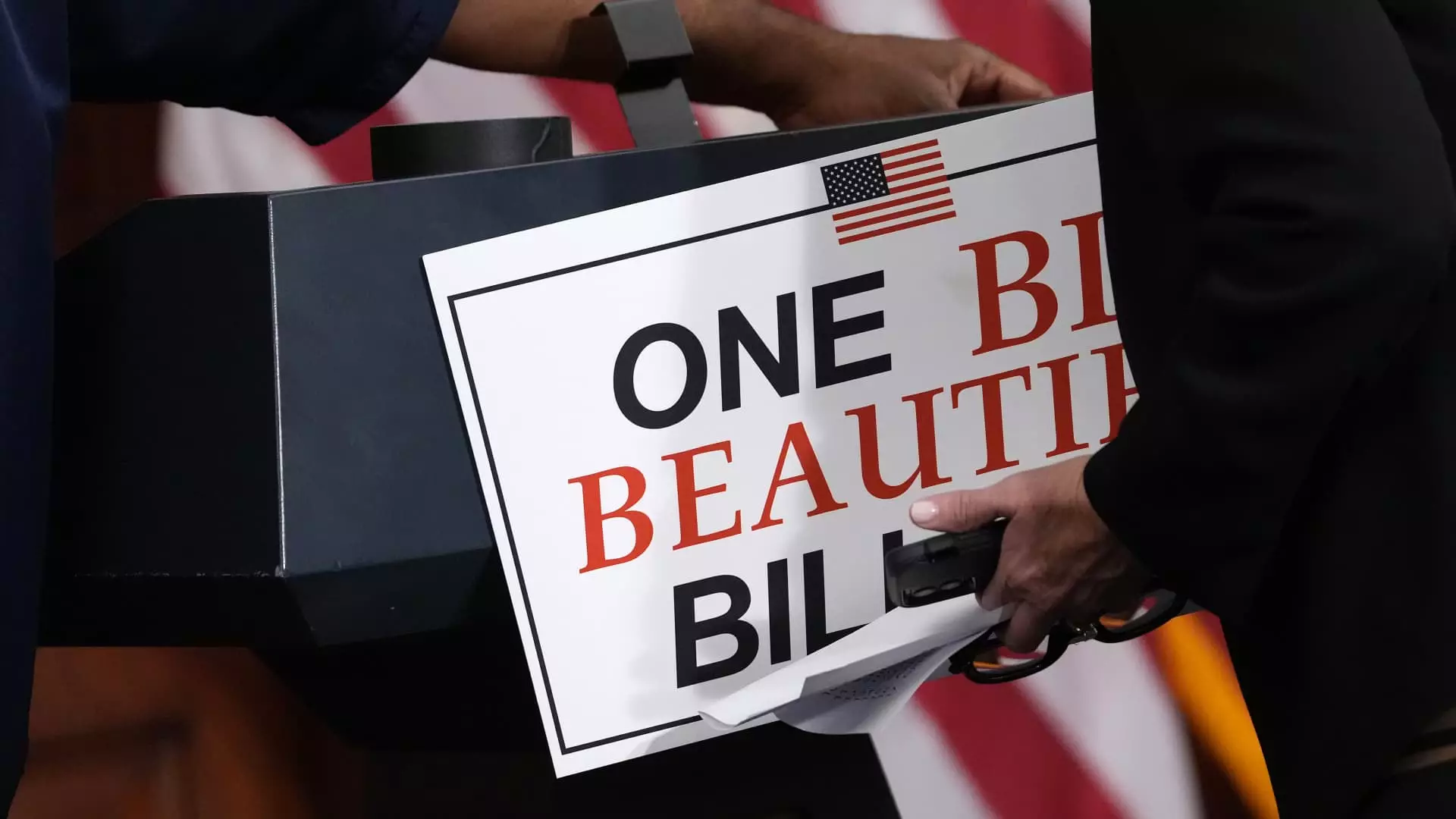The recent passage of a multi-trillion-dollar tax and spending initiative by House Republicans has ignited heated discussions regarding its implications on the U.S. economy and society. Dubbed the “One Big Beautiful Bill Act,” this legislation encompasses significant elements from former President Donald Trump’s 2017 tax reforms while intertwining new tax incentives for overtime wages, tip income, and provisions for older Americans. However, while it may appear as a financial boon for some, it simultaneously threatens to extract essential resources from vulnerable populations, introducing a paradoxical blend of populism and elitism into fiscal policy.
Senate Quagmire: Anticipating Changes and Conflicts
As the bill makes its way to the Senate, uncertainty reigns supreme. The GOP aims to finalize the legislation by July 4, but substantial modifications are anticipated to secure the necessary votes. Economists and policy analysts acknowledge that the Senate’s version will likely not stray excessively from the House proposal; however, various contentious provisions—most notably concerning Medicaid and food assistance through SNAP—are expected to provoke fierce disagreements. What’s particularly troubling is the recklessness with which some senators are approaching budgetary concerns. Senator Ron Johnson’s remarks reveal a worrying reluctance to prioritize fiscal responsibility over crucial social programs.
By leveraging a process known as “budget reconciliation,” congressional Republicans can bypass the traditional Senate filibuster, moving towards a simple majority vote. While this tactic serves to advance their legislative agenda efficiently, it raises the specter of passing a bill that could inflate the national deficit by an estimated $2 to $3 trillion over a decade. Critics are rightfully alarmed: How can responsible governance justify such potentially perilous economic expansion without a robust analysis of its repercussions?
Cuts that Bite: The Hidden Costs of Fiscal Gains
What is often lost amid the discussions of tax reductions and incentives is the stark reality of how these policies place an undue burden on the most marginalized segments of society. Among the most disconcerting aspects of the House GOP’s legislative package are the historic cuts targeting essential programs like Medicaid and SNAP, which provide a lifeline for low-income families. These cutbacks not only undermine the social safety net but also raise moral questions about the responsibility of the government to protect its most vulnerable citizens.
By coupling significant tax cuts for the wealthy with reductions in funding that supports basic needs, the GOP’s plan unwittingly promotes a vision of society where individual gain is prioritized over collective well-being. The justification that these cuts will stimulate economic growth is a specious argument, especially when the most vulnerable suffer the most.
The SALT Cap Conundrum: A Win for the Wealthy?
Equally contentious is the proposed adjustment to the state and local tax (SALT) deduction limit. Initially capped at $10,000 following the Tax Cuts and Jobs Act, the House’s new proposal aims to increase this cap to $40,000. On the surface, this seems like a win for taxpayers in high-tax states. However, one cannot overlook that such a change primarily benefits higher earners who itemize deductions, perpetuating a cycle where fiscal advantages accrue to the affluent while low-income populations bear the consequences of reduced social funds.
Discussions around modifying the SALT cap reflect a larger trend where tax reforms disproportionally favor those who can afford to lobby for their interests, leaving everyday Americans to navigate a landscape increasingly tilted against them. Senators from high-tax states like New York and California have argued passionately for an increase that would shield wealthy constituents, yet the broader implications for budget deficits and social spending remain perilously underexplored.
Child Tax Credit: A Half-Hearted Gesture?
Furthermore, the proposed enhancements to the child tax credit, while seemingly beneficial, may only provide a façade of support for families amid larger issues of financial strain. The bill attempts to make permanent the maximum credit of $2,000 per child instituted under Trump, but critics argue this is barely sufficient given the rising costs of living and inflation. Notably, while some seek to raise the credit further, the prospect of making such changes under tense negotiations raises questions about whether the final result will genuinely reflect the needs of working families or merely serve as a superficial appeasement to secure votes.
As bipartisan discussions unfold regarding parenthood incentives, it is evident that the GOP must confront the fact that merely extending these credits will not alleviate the chronic economic pressures faced by many families. It is not just about tax credits; it’s about creating a sustainable economy where families can thrive without the constant fear of financial instability.
In sum, while the House GOP’s tax and spending package aims to solidify certain partisan priorities, it raises crucial ethical questions about fiscal responsibility versus social justice. The political maneuvering behind it is both a testament to governance in the face of partisanship and a glaring indicator of the widening divide between the wealthy and the working class. True progress can only be achieved through an inclusive approach that acknowledges the realities encountered by all Americans, particularly the most disadvantaged.


Leave a Reply